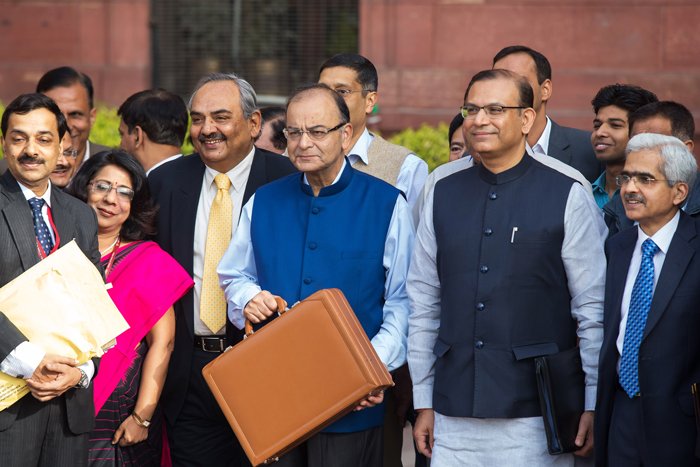
- The Economic Survey for 2015-16 was tabled in Parliament by Union Finance Minister Arun Jaitley on Friday.
- Economic Survey predicts India\'s long run potential GDP growth to be between 8 per cent to 10 per cent.
The Economic Survey for 2015-16 was tabled in Parliament by Union Finance Minister Arun Jaitley on Friday. It is the Finance Ministry's view on the annual economic development of the country that presents a broad idea on the macroeconomic data, which further impacts key budget decisions.
The survey, a flagship annual document of the Ministry of Finance, reviews the developments in the economy over the previous 12 months, which summarises the performance of major development programmes, and highlights the policy initiatives of the government and the prospects of the economy in the short to medium term.
Two days before Union Budget 2016-17, Chief Economic Advisor Arvind Subramanian presented his second Economic Budget on Friday.
A government spokesperson had earlier stated: "CEA may brief the participants about the economic situation both global and domestic and may also brief about the economic analysis of micro and macroeconomic situation made in the Economic Survey 2015-16 and the likely state of economy in the coming year and the steps to deal with the same"
Below are some key points announced in the Economic Survey:
On growth:
- GDP growth rate for 2016-17 to be in the range of 7 per cent to 7.75 per cent.
- Growth in Industry is estimated to have accelerated during the current year.
- Economic Survey predicts India's long-run potential GDP growth to be between 8 per cent to 10 per cent.
- Growth in the services sector moderated slightly but remains robust.
- 8 per cent growth possible in a couple of years.
On CAD and Fiscal Deficit:
- Current Account Deficit as a proportion of GDP likely to be in the low range of 1 to 1.5 per cent.
- Economic Survey says Fiscal Deficit target for 2015-16 of 3.9 per cent "seems achievable".
- Low impact of Seventh Pay Commission on inflation.
- India needs to focus on supplies for food security.
- Current RBI policy rate seems neutral.
- FY16 Subsidy Bill seen below 2 per cent of GDP.
- Global demand to hit growth in near term.
- Foreign demand seems weak.
- April-January trade gap Rs 106.8 billion # FY17 expected to be challenging.
Banking and corporate sector:
- Estimated capital requirement for banks likely to be around Rs 1.8 trillion by 2018/19.
- Corporate bank balance sheets remain stretched, affecting prospects for reviving private investments.
- Underlying stressed assets in the corporate sector must be sold or rehabilitated.
- The government could sell off certain non-financial companies to infuse capital in state-run banks.
- Government proposes to make available 700 billion rupees via budgetary allocations during current, succeeding years in banks.
On Rupee:
- Rupee's value must be fair, avoiding strengthening; fair value can be achieved through monetary relaxation.
- India needs to prepare itself for a major currency readjustment in Asia in wake of a similar adjustment in China.
- Gradual depreciation in rupee can be allowed if capital inflows are weak.
- India stable amid gloomy global markets.
Taxation:
- Need to phase out tax exemptions # FY17 expected to be challenging on the fiscal front.
- Tax base should widen to over 20 per cent from the current 5.5 per cent.
- Tax revenue expected to be higher than budgeted levels in FY15/16.
- The easiest way to widen the tax base would be not to raise exemption thresholds.
- Favours review and phasing out of tax exemptions.
- Higher property tax rates to check realty speculation.
- Reasonable taxation needed on farm and realty income.
With ANI inputs
First published: 26 February 2016, 8:02 IST


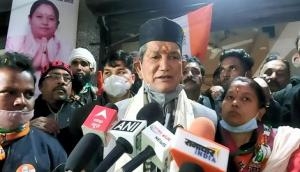
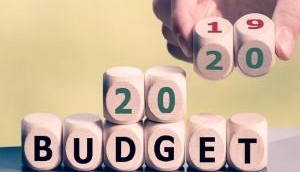
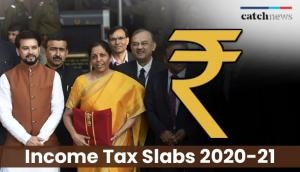
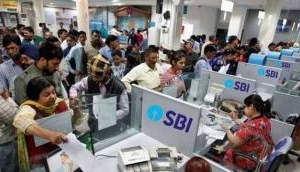
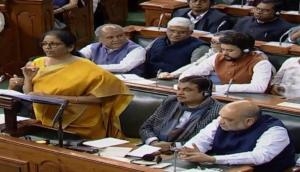
![BJP's Kapil Mishra recreates Shankar Mahadevan’s ‘Breathless’ song to highlight Delhi pollution [WATCH] BJP's Kapil Mishra recreates Shankar Mahadevan’s ‘Breathless’ song to highlight Delhi pollution [WATCH]](https://images.catchnews.com/upload/2022/11/03/kapil-mishra_240884_300x172.png)

![Anupam Kher shares pictures of his toned body on 67th birthday [MUST SEE] Anupam Kher shares pictures of his toned body on 67th birthday [MUST SEE]](https://images.catchnews.com/upload/2022/03/07/Anupam_kher_231145_300x172.jpg)






